The commons. A new approach to collective housing
DOI:
https://doi.org/10.35305/23626097v9i16.373Keywords:
commons, collective housing, domestic space, daily life, project toolsAbstract
This work is focused on the interest in the emerging philosophical-political paradigm of the common as a response to the systemic crises that we experienced during the last decades in relation to multiple spheres such as the environmental, economic, social, and political ones, especially in the big cities.
In response to these challenges which have been emphasized by the global health crisis of COVID-19, the main hypothesis is that the common can allow us to rethink collective housing from a new perspective that breaks down the binary and hierarchical logic through which we understand space. It is argued that the collective housing project based on the common could give raise to the repoliticization of the domestic space and its adaptation to contemporary challenges. This leads to housing configurations enabling both a diversity of coexistence structures and a variety of quality shared situations and activities.
In this sense, the interest of this article lies mainly in being able to provide a new perspective on collective housing that serves to not only generate new questions but also contribute to design higher quality domestic spaces. The aim is to allow for a healthier daily life and the repoliticization of the domestic space in the proximity sphere. To achieve this end, research advances of La Ciudad Común laboratory are introduced; they are based on a methodology applied to thirty case studies in Buenos Aires and Rosario, Argentina, between 1880 and 2020.
Downloads
Metrics
References
Franco López, V. (2019). Lo(s) común(es) en arquitectura. Más allá de lo público y lo privado. A&P Continuidad 6(10), 46-53.
Gago, V. (2018). Neo-comunidad: circuitos clandestinos, explotación y resistencias. En C. Vega Solís, R. Martínez Buján y M. Paredes Chauca (Eds.). Cuidado, comunidad y común. Experiencias cooperativas en el sostenimiento de la vida. Madrid, España: Traficantes de Sueños.
Garcés, M. (2013). Un mundo común. Barcelona, España: Edicions Bellaterra.
Gutiérrez Aguilar, R. (2018). Prefacio. En C. Vega Solís, R. Martínez Buján y M. Paredes Chauca (Eds.). Cuidado, comunidad y común. Experiencias cooperativas en el sostenimiento de la vida. Madrid, España: Traficantes de Sueños.
Hardt, M. y Negri, A. (2011). Commonwealth. El proyecto de una revolución del común. Madrid, España: Editorial Akal.
Herrero, Y. (2017). Cooperar y cuidar de lo común para sobrevivir. En A.A.V.V. Rebeldías en común. Sobre comunales, nuevos comunes y economías cooperativas. Madrid, España: Libros en Acción.
Juárez Chicote, A. y Rodríguez Ramírez, F. (2014). El espacio intermedio y los orígenes del Team X. Proyecto, progreso, arquitectura, 11. Recuperado de https:/www.redalyc.org/articulo.oa?id=5176/517651580005.
Laval, C. y Dardot, P. (2015). Común. Ensayo sobre la revolución en el siglo XXI. Barcelona, España: Gedisa.
Lindón, A. (2009). La construcción socioespacial de la ciudad: el sujeto cuerpo y el sujeto sentimiento. Revista Latinoamericana de Estudios sobre Cuerpos, Emociones y Sociedad, 1, 6-20.
Östrom, E. (2000). El gobierno de los bienes comunes. La evolución de las instituciones de acción colectiva. Ciudad de México, México: Editorial UNAM.
Palop, M. E. (2017). Releer los derechos humanos en el espacio de lo común. En AAVV: Rebeldías en común. Sobre comunales, nuevos comunes y economías cooperativas. Madrid, España: Libros en Acción.
Perec, G. (1999). Especies de espacios. Barcelona: Editorial Literatura y Ciencia (Trabajo original de 1974).
Pichón-Rivière, E. y Quiroga, A. P. de (1970). Psicología de la vida cotidiana. Buenos Aires, Argentina: Editorial Nueva Visión.
Rodríguez Ramírez, F. (2016). Un entendimiento infraestructural del proyecto. Buenos Aires, Argentina: Editorial Diseño.
Sánchez Llorens, M. y Rodríguez Ramírez, F. (2017). Emergencia creativa: construyamos soportes. Recuperado de https:/www.academia.edu/35002004/Construyamos_Soportes.
Segato, R. L. (2016). La guerra contra las mujeres. Madrid, España: Traficantes de Sueños.
Vallejo Jiménez, F. (2013). Teoría de los ámbitos. Revista de psicoanálisis y psicología social, 3.
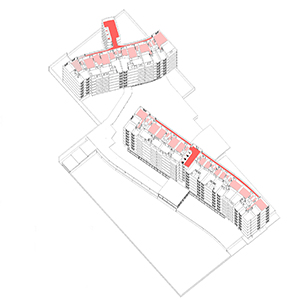
Published
How to Cite
Issue
Section
License
Open access policy
A&P Continuidad is a non-profit and open access publication. According to Mexico Declaration on Cultural Policies, the journal distribution is submitted to Creative Commons Attribution-Noncommercial-ShareAlike 4.0 International Public License (CC BY-NC-SA). “Neither the commercial use of the original work nor that of the possible derivative works are allowed. The distribution of derivative works should be submitted to the license regulating the original work. This license is not free.”
A&P Continuidad authorizes the partial or full reproduction of texts and graphs provided that the source is cited. Authors are exclusively responsible for the criteria expressed in the articles which do not necessarily reflect the opinion of the Editorial Committee or that of the Direction Board. The copyright of the published articles pertains to their authors or publishers.
Transfer of rights
The acceptance of an article to be published implies the author’s transfer of rights to the journal. Authors continue to have the right to use the material in future books or publications, approve or veto the republication of their works as well as the rights related to patents or other rights. Transfer of rights form may be downloaded here.



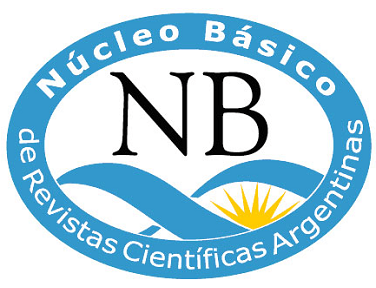






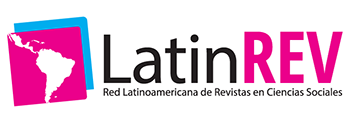

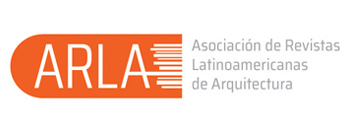













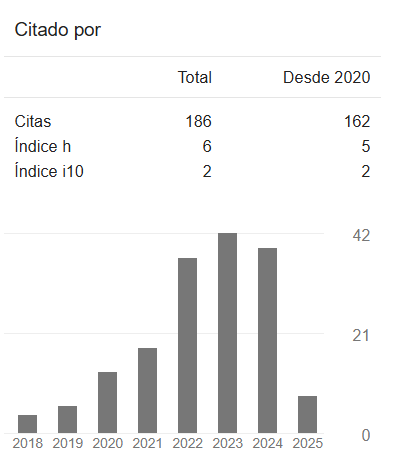


 This OJS site and its metadata are under a
This OJS site and its metadata are under a 

